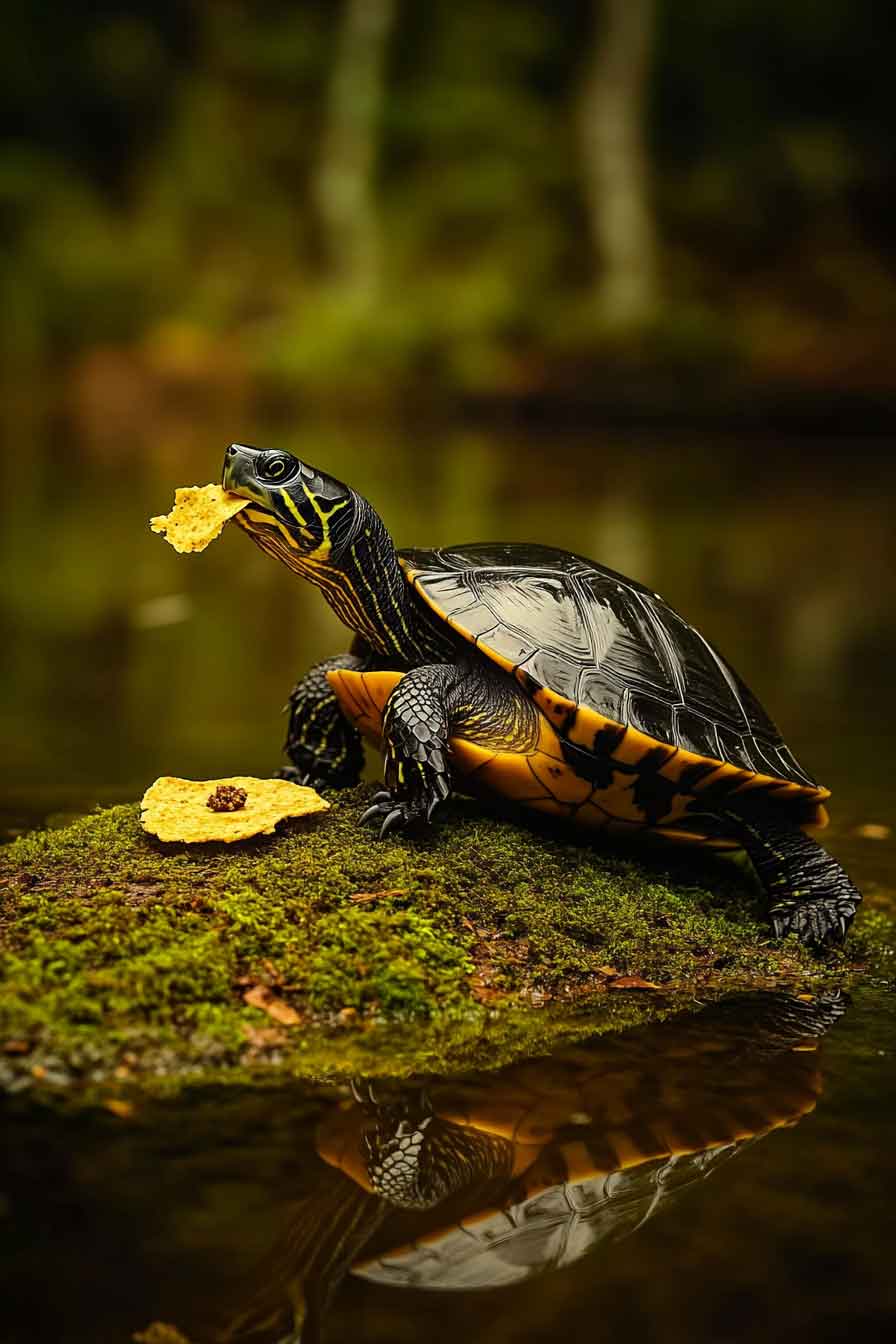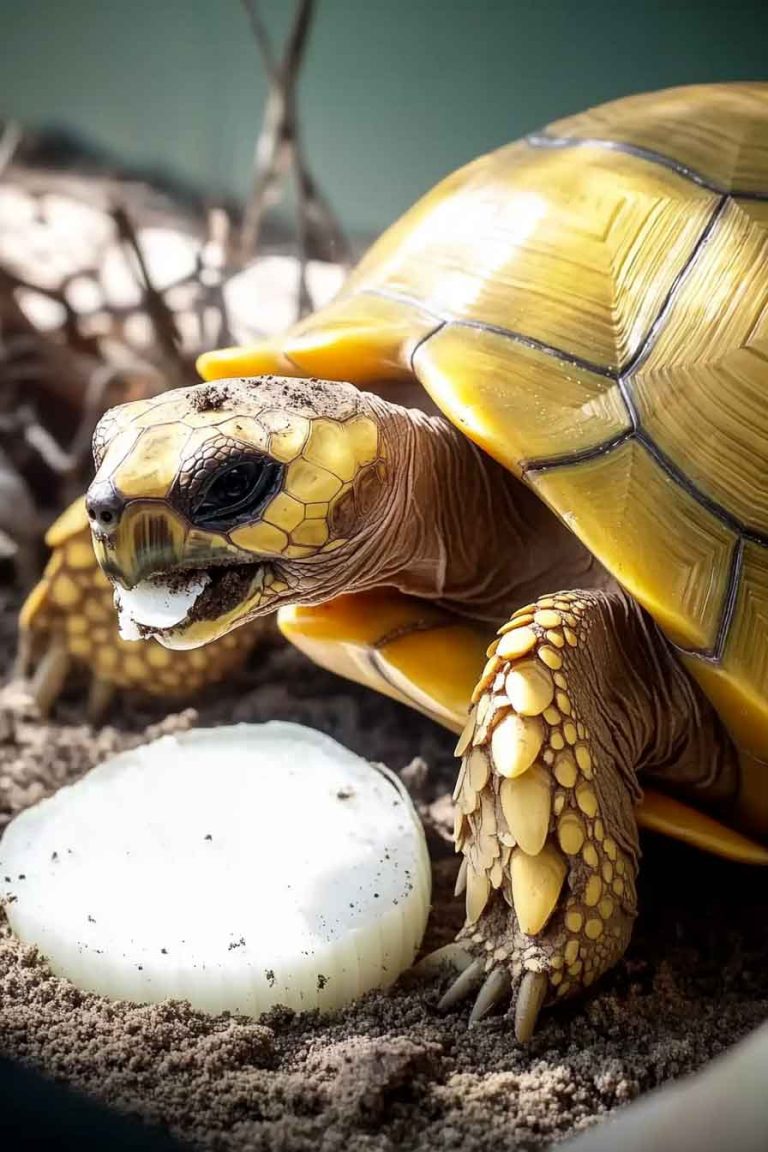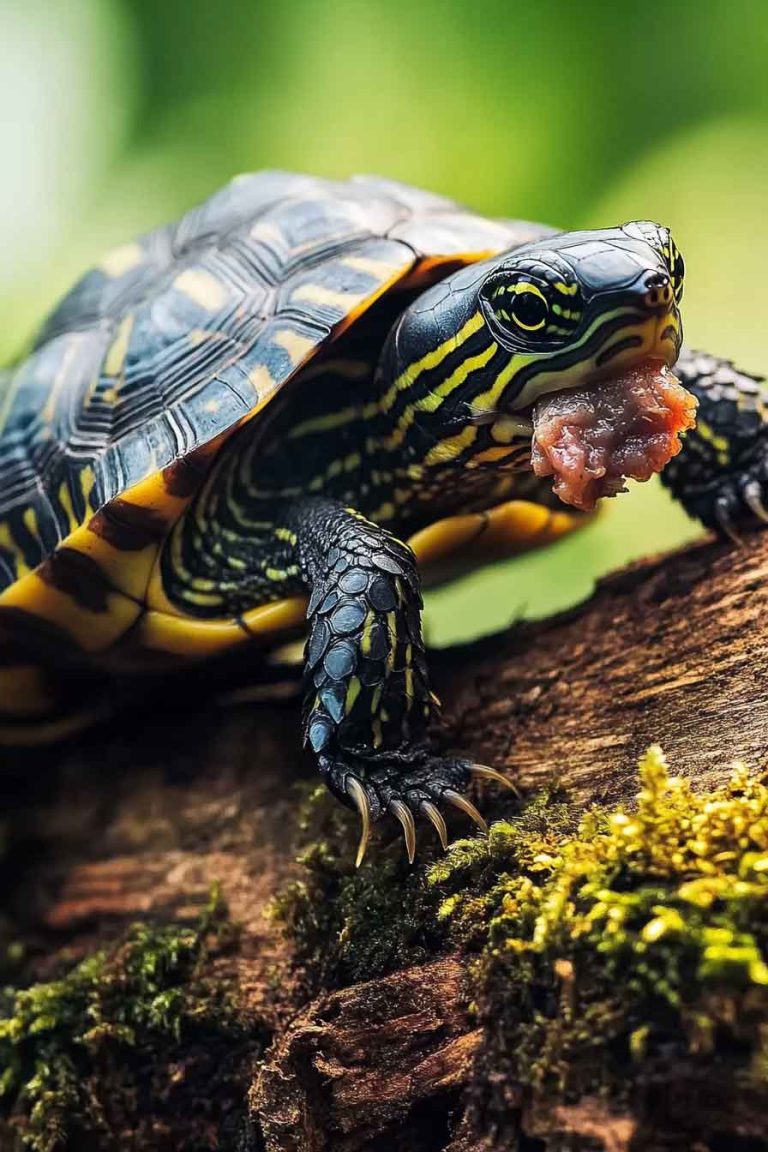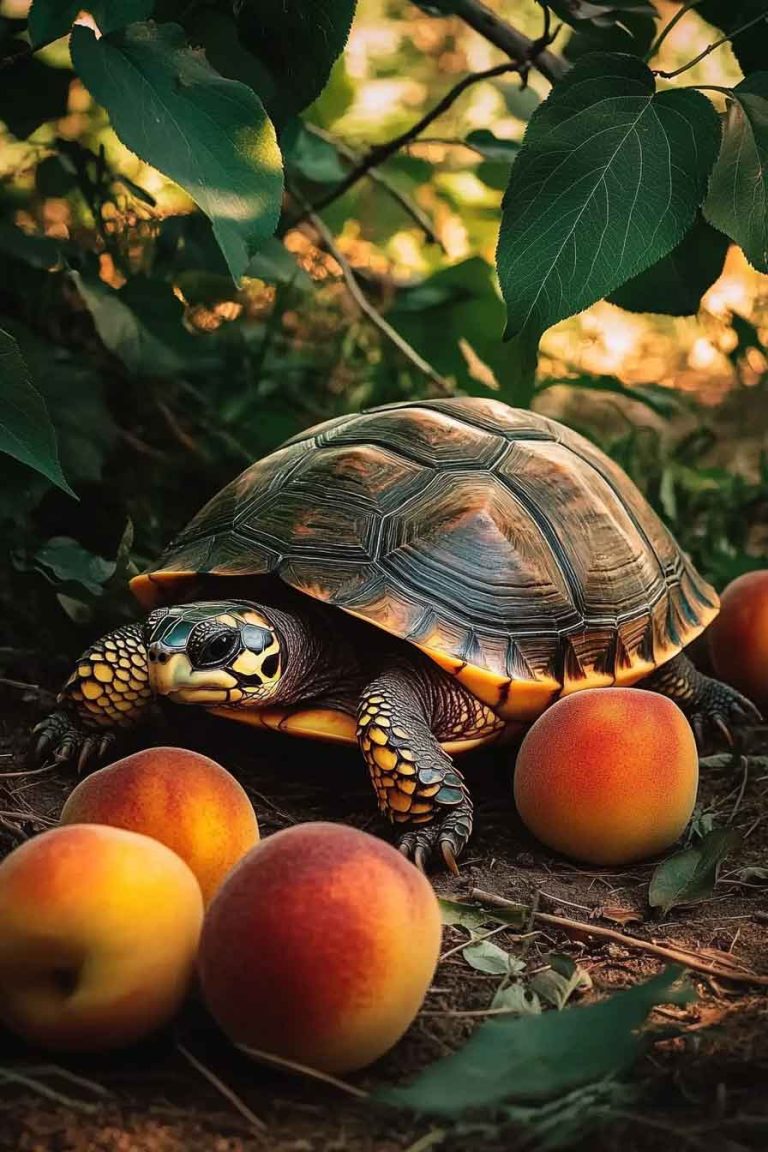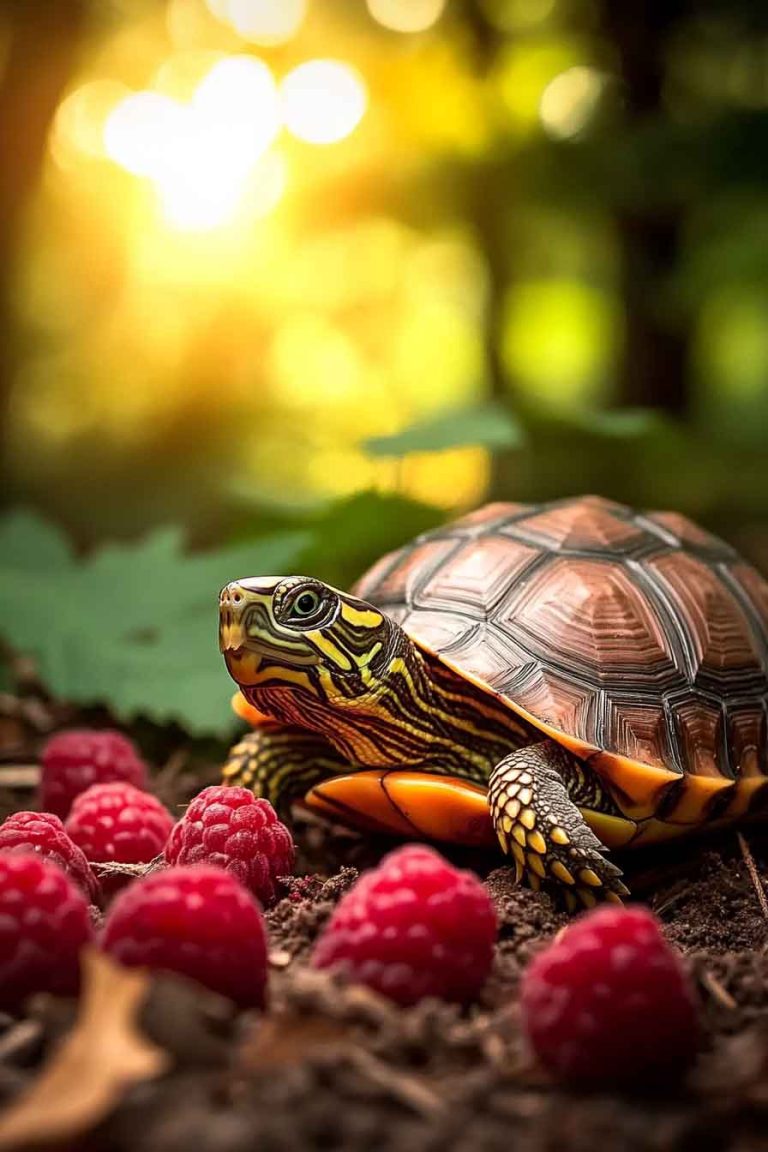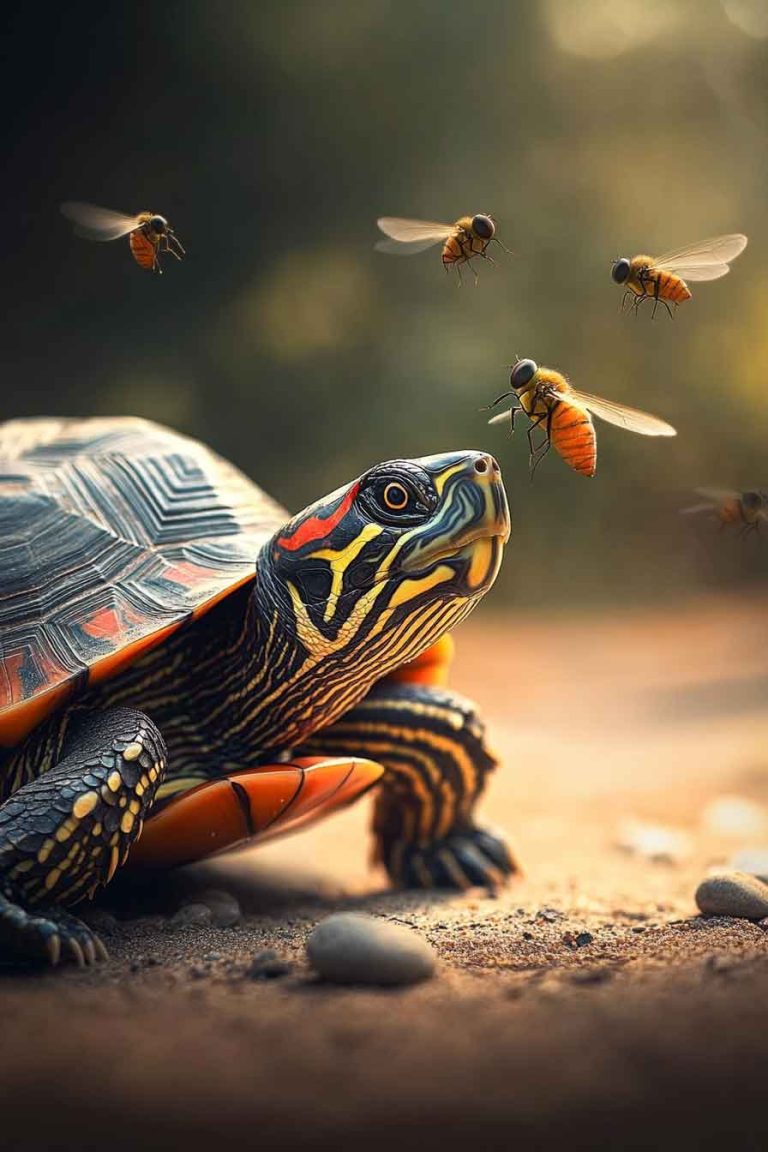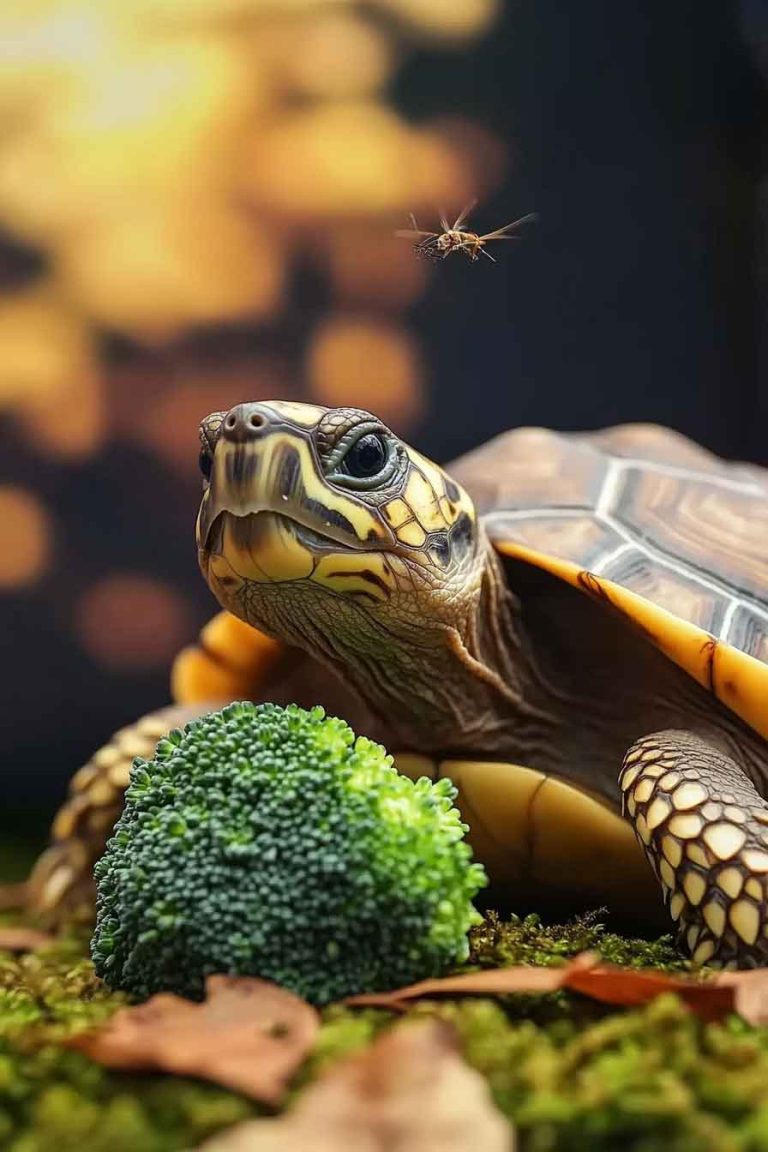Can Turtles Eat Tortillas? (Are Tortillas Safe for Your Pet Turtle?)
If you’re like me and love sharing snacks with your pet turtle, you’ve probably wondered about giving your shelled friend a piece of your tortilla. I get it – when I’m enjoying a tasty burrito or quesadilla, my turtle looks at me with those curious eyes, and I can’t help but want to share. But…
If you’re like me and love sharing snacks with your pet turtle, you’ve probably wondered about giving your shelled friend a piece of your tortilla. I get it – when I’m enjoying a tasty burrito or quesadilla, my turtle looks at me with those curious eyes, and I can’t help but want to share. But before you tear off a piece of that flour or corn tortilla, let me share what I’ve learned about whether turtles can safely eat tortillas.
So, can turtles eat tortillas? The answer is no – I don’t recommend feeding tortillas to your turtle. While tortillas aren’t as toxic as some foods, they contain ingredients that can harm your turtle’s health. Tortillas are high in carbohydrates, sodium, and often contain preservatives and oils that your turtle’s digestive system simply isn’t designed to handle.
In this article, I’ll walk you through everything I’ve discovered about why tortillas aren’t suitable for turtles, what happens if your turtle accidentally eats some, and what safer alternatives you can offer instead. Keep reading if you want to keep your turtle healthy and happy.
Can You Feed Tortillas To Your Pet Turtle?
The short answer is – absolutely not. I know this might surprise you since tortillas seem like such a simple, basic food. When I first got my turtle, I thought anything made from corn or flour would be harmless. However, I quickly learned that what’s safe for us humans isn’t necessarily safe for our reptilian companions.
Turtles have incredibly sensitive digestive systems that are specifically adapted for their natural diet. Unlike dogs or cats who have evolved alongside humans and can handle some processed foods, turtles haven’t developed the ability to process the complex ingredients found in human foods like tortillas.
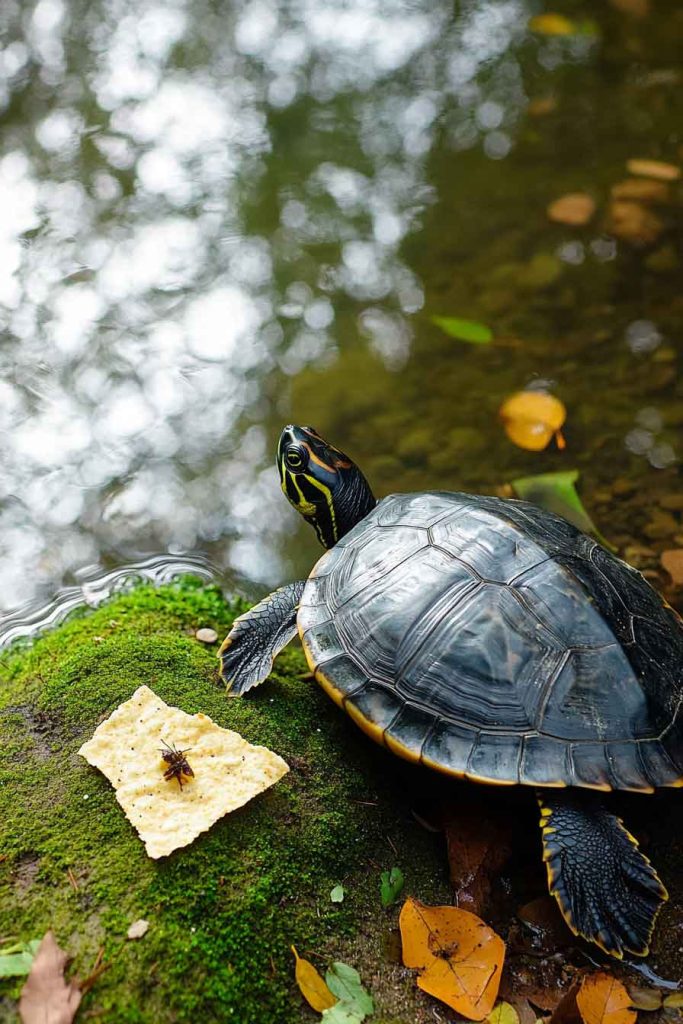
Let me break down what’s typically found in a standard flour tortilla (per 100 grams):
- Carbohydrates: 43-45 g
- Sodium: 400-600 mg
- Fat: 8-10 g
- Protein: 8-9 g
- Sugar: 2-3 g
- Calcium: 120-150 mg
- Phosphorus: 200-250 mg
- Various preservatives and additives
Looking at this nutritional breakdown, I can immediately see several red flags for turtle health. The extremely high carbohydrate content is the first major concern. Turtles in the wild consume very few carbohydrates, and their digestive systems struggle to break down these complex starches properly.
The sodium content is particularly alarming. Turtles need only tiny amounts of salt, and the 400-600 mg found in tortillas can quickly lead to dehydration and kidney problems. I’ve seen too many turtle owners make this mistake, thinking a little salt won’t hurt, only to end up with a sick pet.
The calcium-to-phosphorus ratio is another serious issue. Turtles need a 2:1 ratio of calcium to phosphorus for proper shell and bone development. Tortillas have the opposite ratio, with more phosphorus than calcium, which can lead to metabolic bone disease over time.
Do Turtles Like Tortillas?
From my experience and observations, many turtles will actually show interest in tortillas if offered. This doesn’t mean they should eat them, though. I’ve noticed that my turtle is curious about almost anything I’m eating, but that natural curiosity can get them into trouble.
Turtles don’t have the same taste preferences we do, and they certainly can’t distinguish between foods that are safe and unsafe for them. In the wild, they rely on instinct to choose appropriate foods, but in captivity, they depend on us to make the right choices for them.
When I first offered a small piece of tortilla to my turtle (before I knew better), he seemed interested and even took a few bites. However, within a few hours, I noticed he became lethargic and wasn’t moving around as much as usual. This was my first clue that tortillas weren’t agreeing with his system.
Health Risks for Turtles Eating Tortillas
After researching extensively and consulting with exotic veterinarians, I’ve identified several serious health risks associated with feeding tortillas to turtles. Let me share what I’ve learned about each of these dangers.
Digestive Disorders
The high carbohydrate and fat content in tortillas can wreak havoc on a turtle’s digestive system. I’ve learned that turtles produce very different digestive enzymes compared to mammals, and they simply can’t break down processed wheat flour or corn masa effectively.
When turtles consume tortillas, the undigested carbohydrates can ferment in their intestines, leading to gas, bloating, and discomfort. I’ve seen cases where turtles become constipated or, conversely, develop diarrhea after eating bread products like tortillas.
The oils and fats used in tortilla production can also cause digestive upset. These fats are often hydrogenated or contain preservatives that can irritate a turtle’s sensitive stomach lining. In my experience, even a small amount can cause vomiting or regurgitation.
Sodium Toxicity
This is perhaps the most immediate danger I worry about when it comes to tortillas. The high sodium content can quickly overwhelm a turtle’s kidneys, which aren’t designed to process large amounts of salt.
Symptoms of sodium toxicity that I’ve observed include excessive drinking (if water is available), lethargy, and in severe cases, seizures. The kidneys work overtime trying to filter out the excess salt, which can lead to kidney damage or failure if the exposure is repeated or severe.
I always tell new turtle owners that reptiles evolved in environments where salt was scarce, so their bodies are incredibly efficient at retaining sodium. Adding extra salt through foods like tortillas can quickly upset this delicate balance.
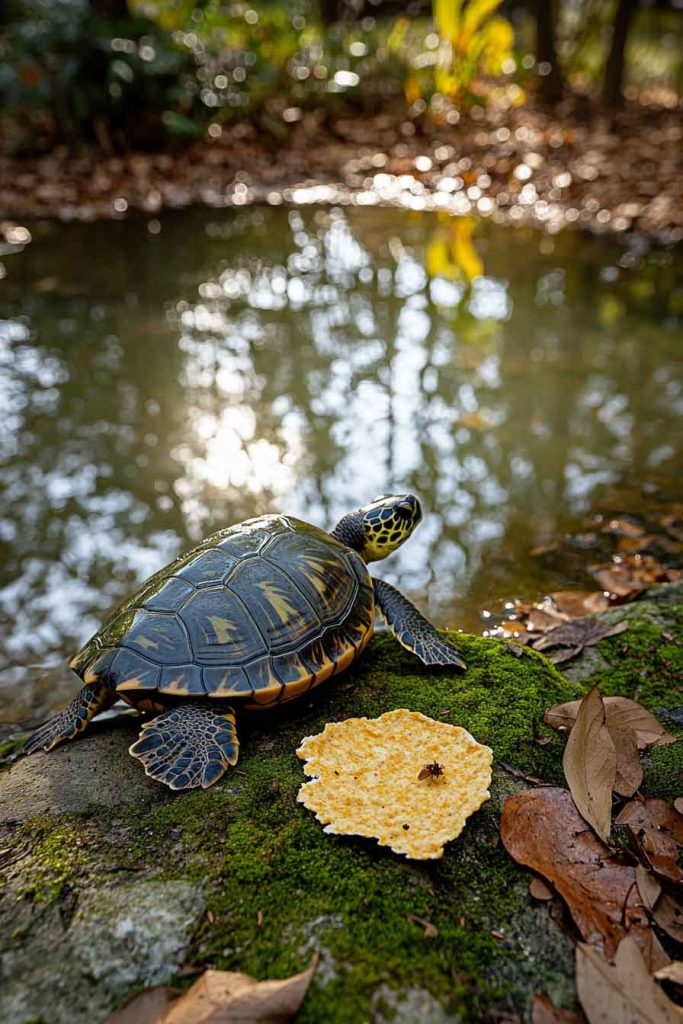
Metabolic Bone Disease (MBD)
The improper calcium-to-phosphorus ratio in tortillas contributes to one of the most serious long-term health problems I see in captive turtles: metabolic bone disease. When turtles consume foods high in phosphorus relative to calcium, the phosphorus binds with calcium in their bodies, making it unavailable for shell and bone development.
Over time, this leads to soft, deformed shells, brittle bones, and in severe cases, complete shell collapse. I’ve worked with turtle rescues and have seen the devastating effects of MBD – it’s completely preventable but often irreversible once it progresses.
The high phosphorus content in tortillas, combined with their lack of adequate calcium, makes them particularly dangerous for growing turtles or females preparing to lay eggs, who have especially high calcium requirements.
Blood Sugar Spikes
The refined carbohydrates in tortillas can cause dangerous spikes in blood sugar levels. Turtles’ metabolisms are much slower than ours, and they’re not equipped to handle sudden influxes of simple sugars and starches.
These blood sugar fluctuations can stress a turtle’s pancreas and potentially lead to diabetes-like conditions. While diabetes is less common in reptiles than in mammals, metabolic disorders from inappropriate diets are becoming more frequent in captive turtles.
How Much Tortillas Should Turtles Eat?
The answer is simple: zero. There is no safe amount of tortilla that I would recommend for any turtle, regardless of size or species. Even a tiny piece can potentially cause digestive upset or contribute to long-term health problems.
I know it’s tempting to share just a small bite, especially when your turtle seems interested, but I’ve learned that consistency is key when it comes to reptile nutrition. Any deviation from their proper diet can have consequences that might not be immediately apparent.
Some turtle owners ask me about “just once” or “special occasions,” but I always advise against it. Turtles don’t understand the concept of treats the way dogs or cats do, and the risks simply outweigh any perceived benefits.
Can You Feed Tortillas to Baby Turtles?
Absolutely not – and this is even more critical than with adult turtles. Baby turtles have developing digestive systems that are even more sensitive than adults. Their small size means that even tiny amounts of inappropriate food can have proportionally larger effects on their health.
Young turtles are also in their most crucial growth phase, requiring optimal nutrition for proper shell and bone development. Feeding them foods like tortillas that interfere with calcium absorption can cause permanent developmental problems.
I’ve seen baby turtles develop severe metabolic bone disease from well-meaning owners who offered small amounts of human food thinking it wouldn’t hurt. The damage done during this critical growth period often cannot be reversed, even with proper care later on.
Baby turtles should stick to species-appropriate commercial turtle food, with appropriate fresh vegetables and proteins as they grow. There’s simply no room in their diet for empty calories from processed foods like tortillas.
What Should You Do If Your Turtle Eats Tortillas?
If your turtle has accidentally consumed tortilla, don’t panic, but do take it seriously. Here’s what I recommend based on my experience and veterinary guidance:
Immediate Steps:
- Remove any remaining tortilla from your turtle’s enclosure
- Provide fresh, clean water to help flush sodium from their system
- Monitor your turtle closely for the next 24-48 hours
Watch for these warning signs:
- Lethargy or unusual inactivity
- Vomiting or regurgitation
- Difficulty swimming or walking
- Excessive drinking
- Changes in appetite
- Unusual breathing patterns
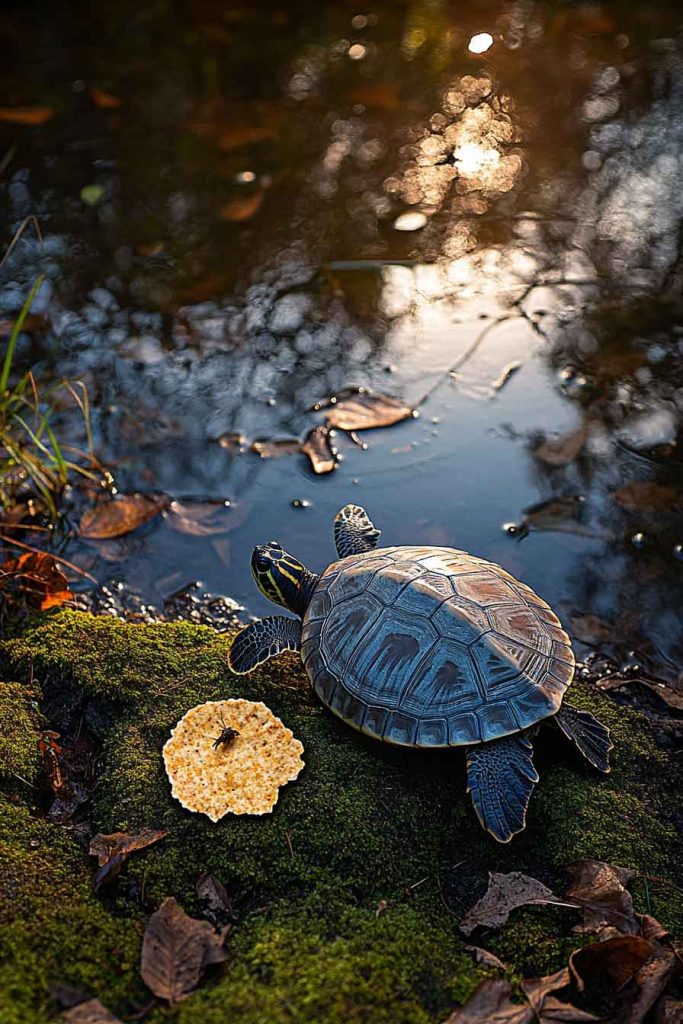
If you notice any of these symptoms, contact an exotic veterinarian immediately. Don’t wait to see if symptoms improve on their own.
What NOT to do:
- Don’t try to make your turtle vomit
- Don’t give additional food right away
- Don’t panic and stress your turtle with excessive handling
In most cases, if the amount was small and your turtle is otherwise healthy, they’ll recover without intervention. However, it’s always better to err on the side of caution when it comes to exotic pets.
Safe Alternatives to Tortillas for Turtles
Instead of sharing your tortillas, let me suggest some safer alternatives that your turtle will enjoy and that will actually benefit their health:
Leafy Greens:
- Collard greens
- Dandelion greens
- Mustard greens
- Romaine lettuce (in moderation)
- Red leaf lettuce
Vegetables:
- Squash (butternut, acorn, yellow)
- Bell peppers (red, yellow, orange)
- Carrots (grated, in moderation)
- Sweet potato (cooked, no seasoning)
Fruits (occasional treats):
- Strawberries
- Blueberries
- Melon
- Apple (remove seeds)
- Grapes (cut in half)
Protein sources (for omnivorous species):
- Cooked chicken (plain, no seasoning)
- Hard-boiled eggs
- Commercial turtle pellets
- Crickets or other feeder insects
The key is to research your specific turtle species’ dietary needs, as requirements vary significantly between aquatic, semi-aquatic, and terrestrial species.
Frequently Asked Questions (FAQs)
Can Box Turtles Eat Tortillas? No, box turtles cannot eat tortillas safely. While box turtles are omnivores with more varied diets than some species, tortillas still pose the same risks of digestive upset, sodium toxicity, and nutritional imbalance. Box turtles do better with natural foods like fruits, vegetables, and occasional protein sources.
Can Red-Eared Slider Turtles Eat Tortillas?
Red-eared sliders should never eat tortillas. These aquatic turtles have particularly sensitive digestive systems adapted for aquatic vegetation and small aquatic animals. The high sodium and carbohydrate content in tortillas can cause severe digestive problems and potentially kidney damage in red-eared sliders.
Can Painted Turtles Eat Tortillas? Painted turtles cannot safely consume tortillas. Like other aquatic species, painted turtles are adapted to eat aquatic plants, algae, and small aquatic creatures. Their digestive systems are not equipped to handle processed foods like tortillas, and the risks of metabolic problems and digestive upset are significant.
Are Corn Tortillas Safer Than Flour Tortillas? Neither corn nor flour tortillas are safe for turtles. While corn tortillas may have slightly less sodium than some flour varieties, they still contain too many carbohydrates and often have added salt and preservatives that are harmful to turtles. Both types should be avoided completely.
What About Homemade Tortillas Without Salt? Even homemade, salt-free tortillas are not appropriate for turtles. The base ingredients (corn masa or wheat flour) are still too high in carbohydrates and lack the proper nutritional balance that turtles need. Turtles require specific ratios of nutrients that processed grain products simply cannot provide.
Conclusion
After years of turtle ownership and extensive research, I can confidently say that tortillas have no place in a turtle’s diet. While they might seem harmless, the combination of high carbohydrates, sodium, and improper mineral ratios makes them potentially dangerous for our shelled friends.
I understand the desire to share our food with our pets – it’s a natural way we show affection. However, the best way we can show love for our turtles is by providing them with species-appropriate nutrition that supports their health and longevity.
There are plenty of safe, healthy alternatives that your turtle will enjoy just as much, if not more, than tortillas. Stick to leafy greens, appropriate vegetables, and species-specific commercial foods, and your turtle will thrive.
Remember, when in doubt, always consult with an exotic veterinarian who specializes in reptile care. They can provide species-specific dietary guidance and help you create the best possible nutrition plan for your individual turtle.
Your turtle depends on you to make the right choices for their health. By avoiding foods like tortillas and focusing on proper nutrition, you’re giving your pet the best chance at a long, healthy, and happy life.

